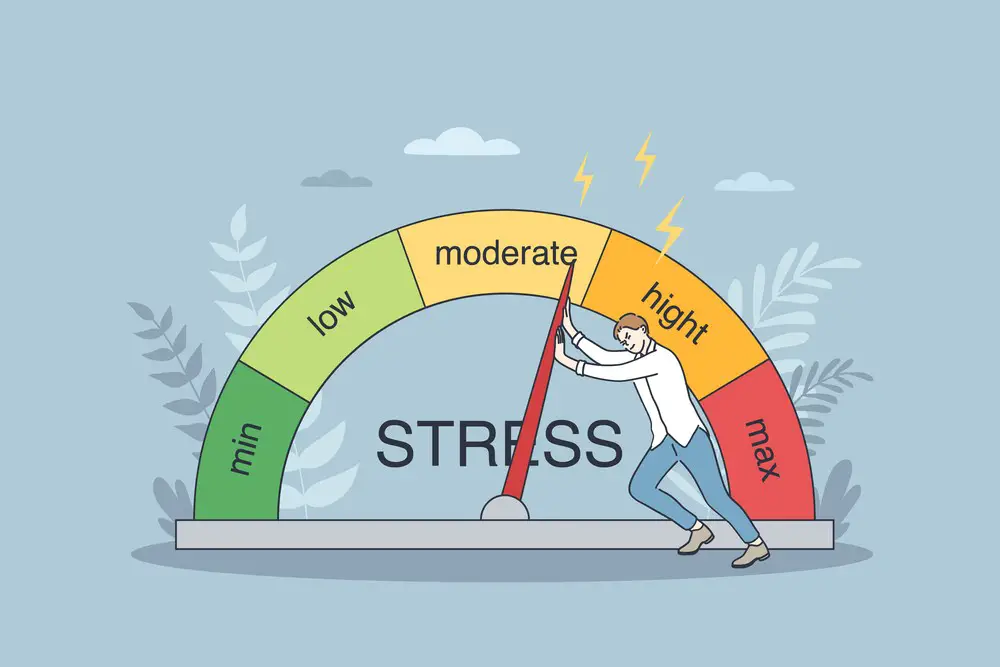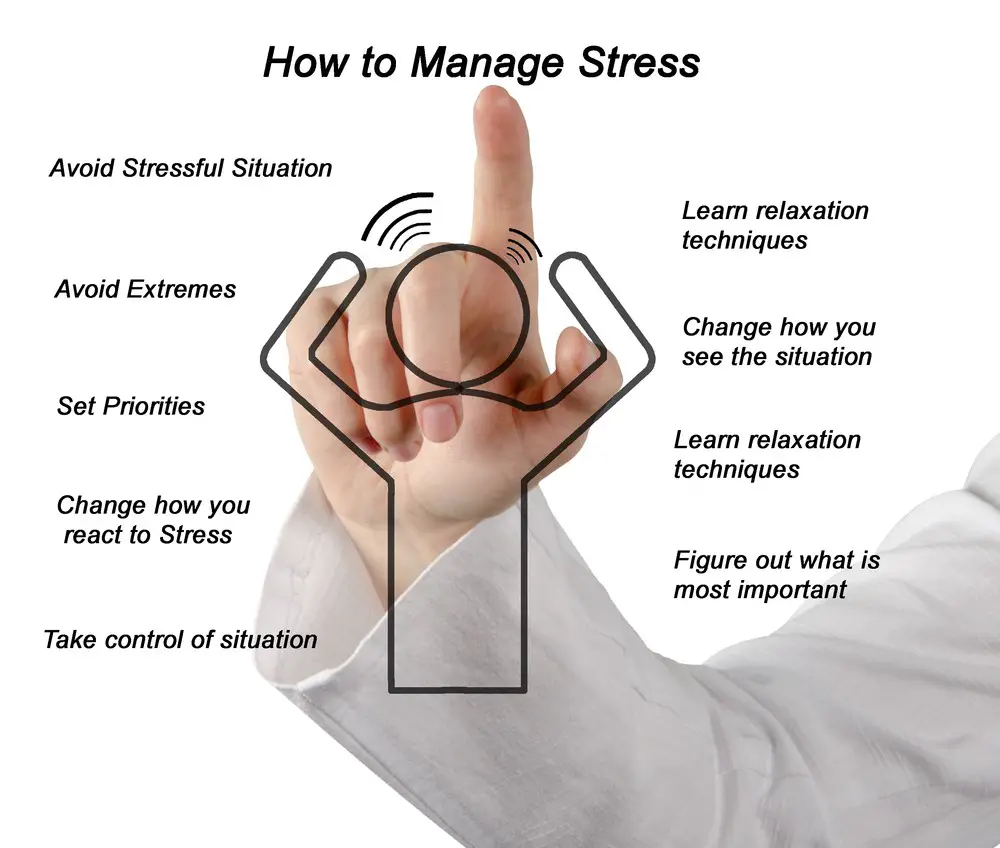Leaving a job due to stress can be difficult, but sometimes, it’s the best choice for your mental and physical health. In today’s fast-paced professional world, it’s not uncommon for individuals to experience work-related stress that can become overwhelming and unbearable. Recognizing and understanding the impact of workplace stress on your life is crucial for making such an important decision.
You might face mixed emotions about leaving your job because of stress, and one of the major concerns is often how to explain your departure to employers and potential future interviewers. Knowing how to present your decision professionally and transparently can make all the difference in easing the transition to new opportunities while maintaining your physical and mental well-being.
Key Takeaways
- Identify workplace stress and its impact on your life
- Plan your departure and learn to explain it to employers professionally
- Focus on maintaining your health and managing stress in future jobs
 Understanding Job-Related Stress
Understanding Job-Related Stress
Dealing with job-related stress can be challenging, especially when it affects your overall well-being. It’s essential to recognize the telltale signs of excessive stress at work and learn how to cope with it. This way, you can maintain your overall health, including mental and physical stability.
Workload is a significant contributing factor to stress. Heavy workloads, tight deadlines, and high expectations from your employer can lead to burnout. Prioritizing and planning tasks, getting support from colleagues and supervisors, and taking regular breaks can help mitigate this factor.
Your health plays a vital role in your ability to cope with stress. Poor physical health can leave you exhausted and vulnerable, making handling job-related stress even more challenging. Keeping a balanced diet, getting enough sleep, and exercising regularly can go a long way in maintaining your health.
Mental health is also a crucial factor in managing stress. Anxiety and depression can aggravate feelings of stress and make it difficult to focus on the tasks at hand. It’s essential to seek professional help and practice self-care, such as mindfulness meditation or engaging in hobbies, to enhance your mental well-being.
Sometimes, it’s worth discussing your concerns with your employer. They might be able to adjust your workload, offer support or guidance, and help create a less stressful work environment. Remember that everyone experiences stress differently and that paying attention to how it affects you is crucial.
Key Takeaway: Recognizing job-related stress and taking proactive steps to manage it can help maintain your overall health and make you more resilient in the workplace. Focus on prioritizing tasks, caring for your health, and getting support to lessen the impact of stress on your life.

Recognizing When to Leave Due to Stress
Sometimes, the pressure and demands of a job can take a toll on your mental and physical well-being. It’s essential to recognize when to prioritize your health and consider leaving a job due to stress. In this section, we’ll discuss some signs that it might be time to evaluate if your job is worth your well-being.
- Excessive anxiety: If you’re constantly feeling anxious during your workday and it’s affecting your ability to function correctly, it might be time to take a step back and evaluate your situation. Feeling some anxiety at work is normal, but persistent and intense anxiety may indicate that it’s time to reevaluate your job.
- Physical symptoms: Stress doesn’t just affect your mind; it can also take a physical toll on your body. Frequent headaches, body aches, or gastrointestinal problems could be signs that your body isn’t coping well with the stress from work. Don’t ignore these signs; pay attention to your body and consider if it’s time to change.
- Constant exhaustion: If you’re always feeling drained and fatigued, even after a full night’s sleep, it could be a sign that your job is causing excessive stress. With no energy or motivation to tackle daily tasks, you might find yourself barely functioning at work and in your personal life.
- Lack of focus and concentration: A stressed mind can make concentrating on tasks and projects difficult. If you’re finding it impossible to stay focused, stress might indicate that it overpowers your ability to work efficiently.
- Diminished job performance: Your work performance will likely suffer when experiencing high stress levels. You might struggle to complete tasks, experience a decrease in productivity, and make multiple mistakes, which can further heighten your anxiety levels.
- Neglected personal life: A job that consumes all your time and energy can lead to the neglect of your personal life, relationships, and hobbies. If you’re missing out on valuable time with loved ones or haven’t been able to enjoy your favorite activities lately, it’s worth considering a change.
Once you’ve recognized the signs of excessive stress and evaluated if your job is worth your well-being, it’s time to take action. Make a list of practical steps to help mitigate the stress, such as discussing your concerns with your manager, seeking help from a mental health professional, or exploring new career opportunities. Remember, your health and happiness come first—don’t hesitate to prioritize your well-being.

How to Plan Your Departure
Quitting your job due to stress can be tough, but a well-thought-out plan makes the transition smoother. Start by understanding your reasons for leaving, and carefully consider the impact of your departure on your mental health, finances, and career growth.
Reflect on your decision and solidify your choice by listing the stressors that have made your job unbearable. This list can help you convey your reasons for quitting more effectively and avoid repeating the same patterns in future jobs.
When preparing for departure, follow these steps:
- Gather essential documents: Ensure you have all necessary employment files, such as performance evaluations, contracts, and other important paperwork. Keep these documents handy for future job applications and reference.
- Consider your financial situation: Before quitting, assess your financial stability. Ensure you have an adequate emergency fund to cover living expenses and potential job search costs. Determine a budget and stick to it during your transition.
- Create a timeline: Set a realistic deadline for your departure. Avoid quitting impulsively and give yourself time to tie up loose ends, complete projects, and ensure a smooth handover.
- Have a contingency plan: Prepare for potential hurdles in your job search by exploring freelance, part-time, or remote work opportunities. This approach can help maintain your income while you search for a new position.
- Network: Leverage your personal and professional contacts to learn about job openings, gather industry insights, and receive referrals. Attend networking events or contact influential people in your field to keep up-to-date with developments.
- Prepare for the exit conversation: Practice your talking points and rehearse your reason for leaving your job due to stress. Stay positive and professional to ensure the conversation goes smoothly and leaves a good impression.
Remember, planning your departure is crucial to maintain peace of mind and successfully navigate your next career destination.
Explaining Your Decision to Employers
When explaining your decision to leave a previous job due to stress, it’s essential to approach the topic with finesse. Be honest, but focus on the situation’s growth opportunities and positive aspects. Here are a few strategies to help you convey your reasons to potential employers:
Be candid, but keep it brief. You don’t need to share every detail about your stress levels at your previous job. Briefly explain that you felt overwhelmed and decided to prioritize your well-being. Employers will appreciate your honesty and ability to recognize when a change is needed.
Highlight your learnings. Emphasize the personal growth you’ve experienced since leaving your stressful job. Maybe you’ve improved your time management skills, learned new coping strategies, or discovered healthier ways to handle a demanding workload. Sharing these insights will show employers your commitment to self-improvement.
Focus on your future. Instead of dwelling on the past, direct the conversation towards your future goals and how this new opportunity aligns with them. Explain how your experiences have prepared you to succeed in a new job and what you want to accomplish in your next role.
Reassure your dedication. Employers might worry about your ability to handle stress in their organization. Reassure them by providing examples of how you’ve successfully navigated high-pressure situations in the past or by sharing new strategies you’ve developed to maintain a healthy work-life balance.
By adopting a friendly tone and addressing your reason for leaving with honesty and positivity, you can effectively explain your decision to employers and show them that you’re ready for new challenges in your career.
 Maintaining Your Physical and Mental Health
Maintaining Your Physical and Mental Health
Stress from work can take a toll on your physical and mental health, making it essential to prioritize self-care during and after your job transition. Here are some strategies to help you maintain your well-being:
- Therapy: Talking with a mental health professional can be incredibly beneficial. They can provide valuable insights, coping tools, and a supportive environment for you to process your feelings and experiences related to job stress.
- Exercise: Incorporating regular physical activity into your routine can help alleviate stress and boost your mood and energy levels. Find activities you enjoy, such as walking, yoga, or swimming, and aim for at least 30 minutes a day, most days of the week.
- Breaks: It’s crucial to give yourself mental breaks throughout the day. Set aside time for short breaks, whether it’s a quick walk around the block or a calming meditation. Taking regular breaks helps you recharge and can even improve your focus and productivity when you return to work.
- Sleep: Prioritize getting enough sleep each night to ensure you’re giving your body and mind the opportunity to recover and rejuvenate. Aim for seven to nine hours of rest, sticking to a consistent sleep schedule and creating a relaxing bedtime routine.
- Mental Health: Engage in practices that promote mental well-being, such as mindfulness meditation, journaling, or connecting with supportive friends and family members. Additionally, consider learning stress management techniques, like deep breathing exercises or progressive muscle relaxation.
- Physical Health: Take care of your body by maintaining a balanced diet, staying properly hydrated, and avoiding excessive alcohol or caffeine consumption. These habits can help you feel your best and remain physically resilient during times of stress.
By incorporating these self-care strategies into your daily routine, you’ll be better equipped to navigate the challenges associated with leaving a job due to stress and maintain a strong foundation for physical and mental health moving forward. Remember, prioritizing your well-being is essential for a fulfilling and balanced life.
Navigating Job Interviews After Leaving
Leaving a job due to stress can be tricky to explain during job interviews, but with the right approach, you can present your decision positively. First, be honest but concise when discussing your reasons for quitting. You might mention how the work environment or workload negatively impacted your well-being and stress the importance of maintaining a healthy work-life balance.
When you discuss your previous work experience, highlight your work ethic and accomplishments. Showcase specific projects, goals you achieved, or ways you went above and beyond in your previous role, demonstrating that despite the stress, you were not letting it affect your professional performance.
During the interview, you must focus on what you’ve learned from the experience and how you plan to use it to improve in your next role. You might discuss stress coping strategies, such as time management, prioritizing tasks, or implementing self-care routines.
Remember, your identity extends beyond your most recent job, so use your other experiences, skills, and accomplishments to paint a well-rounded picture of yourself as a candidate. This will help demonstrate your value to potential employers, regardless of your reasons for leaving your last position.
Finally, when addressing your departure, never badmouth your former employer. Instead, express gratitude for the opportunity and emphasize how it’s motivated you to seek a more suitable role that aligns better with your skills, values, and overall career goals.
By approaching the topic with honesty and focusing on your personal growth, you can make your decision to leave a job due to stress an opportunity for growth and positive change in job interviews. Keep your head up, and remember that your worth is not solely dependent on your past work experiences.
Prospects After Leaving a Stressful Job
Leaving a stressful job can be a tough decision, but it’s important to remember that you’re prioritizing your well-being. After making this bold move, it’s time to find new opportunities to make you feel fulfilled and valued.
- Consider a career change: You may want to consider a completely different career path while exploring new job prospects. Embrace your interests, passions, and transferable skills to identify potential positions outside your previous field.
- Networking is key: Building a strong professional network helps when finding new opportunities. Attend industry events, join online groups, and connect with people in your desired industry. These connections can provide invaluable advice, job leads, and support during your job search.
- Self-reflection and growth: After leaving a high-pressure position, take some time to reflect on what you learned and how you can grow from the experience. Consider what kind of work environment and role would better fit your mental health and work to build the necessary skills.
- Be honest at interviews: When discussing your reasons for leaving your previous job, it’s best to be honest without disparaging your former employer. Emphasize your desire to find a role that aligns with your values and supports your well-being.
By exploring new avenues and investing time in self-reflection, you can find a job that aligns with your personal and professional goals. With resilience and determination, you’ll soon be on your way to a healthier, more rewarding career.
 Managing Future Workloads and Stress
Managing Future Workloads and Stress
Aligning Work Ethics and Morale
To create a healthy work environment, align your work ethic and morale with the company’s culture. Consider the following:
- Set realistic expectations: Don’t overpromise and set achievable goals. This will help you maintain your work-life balance and reduce stress.
- Improve communication with management: Be open with your supervisors about your workload and ask for support when needed. This fosters a trustworthy relationship with your managers.
- Encourage a supportive culture: Collaboration and teamwork can help boost morale. Participate in team-building activities and promote honest conversations with your colleagues.
Introducing Change to Your Work-Life
Adapting your work life to manage stress effectively involves changing your daily routine and habits. Here are some strategies for introducing change:
- Prioritize tasks: Start your day by identifying the most important tasks and focus on completing them. Delegate or reschedule the less critical ones.
- Take breaks: Regular breaks throughout the day can help you recharge and maintain focus. Use the time for stretching, walking, or grabbing a healthy snack.
- Develop a growth mindset: Embracing change and looking for improvement opportunities can lead to personal and professional growth and reduce stagnation-related stress.
Focus on Healthy Transitions
Making a successful transition to a new job or work environment requires managing stress and establishing healthy habits. Keep these tips in mind:
- Practice self-care: Make time for activities that promote emotional and physical well-being, such as exercise, meditation, or engaging in hobbies.
- Build a support network: Connect with colleagues and friends who understand your situation and can offer guidance or a listening ear.
- Seek professional help if needed: Sometimes, additional support is essential. Seeking advice from a therapist or counselor can help you manage stress and build coping strategies for the future.
Key takeaway: Align your work ethics and morale with your company’s culture, introduce changes to your work life to manage stress, and focus on healthy transitions to ensure you maintain your well-being and effectively manage future workloads and stress.
The Next Steps: From Job Exit to Self-Discovery ?
Alright, you’ve just read through many strategies for explaining why you left a job due to stress. But what comes after that big step? The journey doesn’t end when you leave the stressful environment; it’s often just the beginning. This section is your playbook for recognizing when therapy may be a great next move, how to set therapeutic goals and tracking your newfound growth.

?️♀️ Unmasking the Need: When to Seek Therapy for Job-Related Stress
Sometimes, admitting you could use a little help is the most challenging part.
- Persistent Anxiety: Even after leaving the job, the stress follows you.
- Sleepless Nights: Restlessness and insomnia have become your new companions.
- Mood Swings: Your emotions are a rollercoaster, affecting personal relationships.
- Physical Symptoms: Stress manifests as headaches, stomach issues, or skin conditions.
? Pro Tip:
If these signs resonate with you, consider taking a proactive step by consulting a mental health professional.
? Charting Your Course: Goal-Setting for Stress Therapy
Goals act as your compass, guiding you through the therapy journey.
- New Coping Skills: Learn more adaptive strategies to manage stress.
- Emotional Awareness: Become more attuned to your emotional triggers and reactions.
- Work-Life Balance: Re-establish a healthier relationship with work.
- Personal Growth: Develop self-compassion and resilience to deal with future challenges.
?️ Action Steps:
- Keep a Therapy Journal: Document each session, insight, or homework assignment.
- Review and Revise: Regularly assess your goals and adjust as you progress or encounter new challenges.
? Seeds of Change: Recognizing Progress in Your Therapy Journey
Celebrating the wins is crucial, no matter how small they may seem.
- Reduced Anxiety Levels: You feel calmer and more at ease.
- Better Sleep Quality: Restful nights are becoming more frequent.
- Improved Relationships: Those around you notice a positive change in your demeanor.
- Self-Awareness: You’re becoming skilled at identifying and mitigating stress triggers before they escalate.
? Victory Lap:
Remember, every milestone, no matter how tiny, is a step towards a stress-free you. Celebrate it!
Frequently Asked Questions

How to address quitting due to burnout in an interview?
When addressing burnout in an interview, honesty is essential without sounding negative. You can frame your answer to focus on recognizing the signs of burnout and taking action to maintain a healthy work-life balance. For example:
- “I realized that I was experiencing burnout and decided to take a step back to reevaluate my priorities and focus on self-care.”
- “I wanted to ensure that I could perform at my best, so I made the tough decision to leave my previous job due to burnout.”
Key takeaway: Be honest, but focus on your positive actions to address burnout.
What is a good way to discuss leaving a job due to work-life balance?
Discussing your decision to leave a job due to work-life balance can be framed constructively. Emphasize your commitment to finding a position where you can excel in your work while maintaining a healthy balance:
- “I realized that my previous role didn’t allow for the work-life balance I needed, so I decided to pursue opportunities that better align with my values.”
- “I chose to leave my prior position in search of a more balanced approach to work that allows me to be more effective and fulfilled professionally and personally.”
Key takeaway: Focus on your commitment to performing well while maintaining a balanced life.
How can I mention leaving a position for mental health reasons?
It’s important to be candid but not overshare when mentioning mental health reasons. You can frame your explanation like this:
- “I left my previous position to focus on improving my well-being and ensure I could deliver my best work.”
- “My mental health is important to me, and I realized that my previous position wasn’t conducive to maintaining a healthy mindset.”
Key takeaway: Keep it brief and emphasize the importance of maintaining good mental health.
How to describe quitting a job due to a toxic work environment?
Quitting due to a toxic work environment can be tricky to discuss in an interview, so choosing your words carefully is essential. You want to avoid negativity or bad-mouthing your former employer:
- “I found that the culture at my previous company wasn’t aligned with my values, so I sought a more cooperative and encouraging environment.”
- “I left my last job because I was looking for a more positive and supportive work atmosphere to thrive in.”
Key takeaway: Explain your decision without pointing fingers or portraying yourself as a victim.
What is the best way to explain leaving a role for personal reasons?
Explaining that you left a role for personal reasons is acceptable as long as you keep it vague and professional:
- “I decided to leave my previous job for personal reasons, but I have resolved those matters and am eager to continue my career.”
- “At the time, I needed to prioritize my personal life, but I am now excited to explore new opportunities and bring my skills to a new organization.”
Key takeaway: Keep it vague and reassure the interviewer that your reasons have been resolved.
How can I articulate my resignation due to stress in a letter?
When writing a resignation letter, keep it concise, professional, and respectful. You can mention stress by focusing on your need to prioritize your well-being:
- “I have decided to resign from my position to take some time to focus on my health and well-being.”
- “Due to personal reasons and the need to prioritize my well-being, I must resign.”
Key takeaway: Maintain a professional tone while emphasizing the importance of your well-being.
About Jacob Maslow
After surviving the traumatizing events of 9/11, I took it upon myself to heal through helping others. I’m the primary caregiver of my children and understand from first-hand experience the lonely paths you have to walk as a partner and parent when leaving an unhealthy relationship.
We’re all echoing in a dark space that doesn’t have to be this empty, and that’s been my mission since finding solace and recovery in therapy: To help comfort others who are still in shock and at the prime of their struggle.
I came across BetterHelp after searching for this type of community. I wanted to belong to a body of proactive therapists and supportive therapy veterans that allowed me to see other sides of the story.
It was unconventional, and that’s what attracted me most. During my most challenging times, when my ex-wife completely cut me off from my children, I found comfort and clarity through BetterHelp.
Instead of being chained to a strict therapist recommendation, I was in charge of who I felt understood my struggle most. That allowed me to find my true peace, as I was reunited with those who read behind my words and had first-hand experience with my trauma.
Recovery is a choice; with BetterHelp, that choice will be a few clicks away. You can join their couples-oriented platform, Regain.us, for those stuck with family estrangement and toxic relationship patterns.
- The Burnout Epidemic: Why We’re All Feeling Overwhelmed and How to Cope - February 9, 2024
- How to Live a Peaceful Life - February 9, 2024
- Useful Information You Should Know About Health Screenings - February 8, 2024
This site contains affiliate links to products. We will receive a commission for purchases made through these links.


 Understanding Job-Related Stress
Understanding Job-Related Stress Maintaining Your Physical and Mental Health
Maintaining Your Physical and Mental Health Managing Future Workloads and Stress
Managing Future Workloads and Stress
